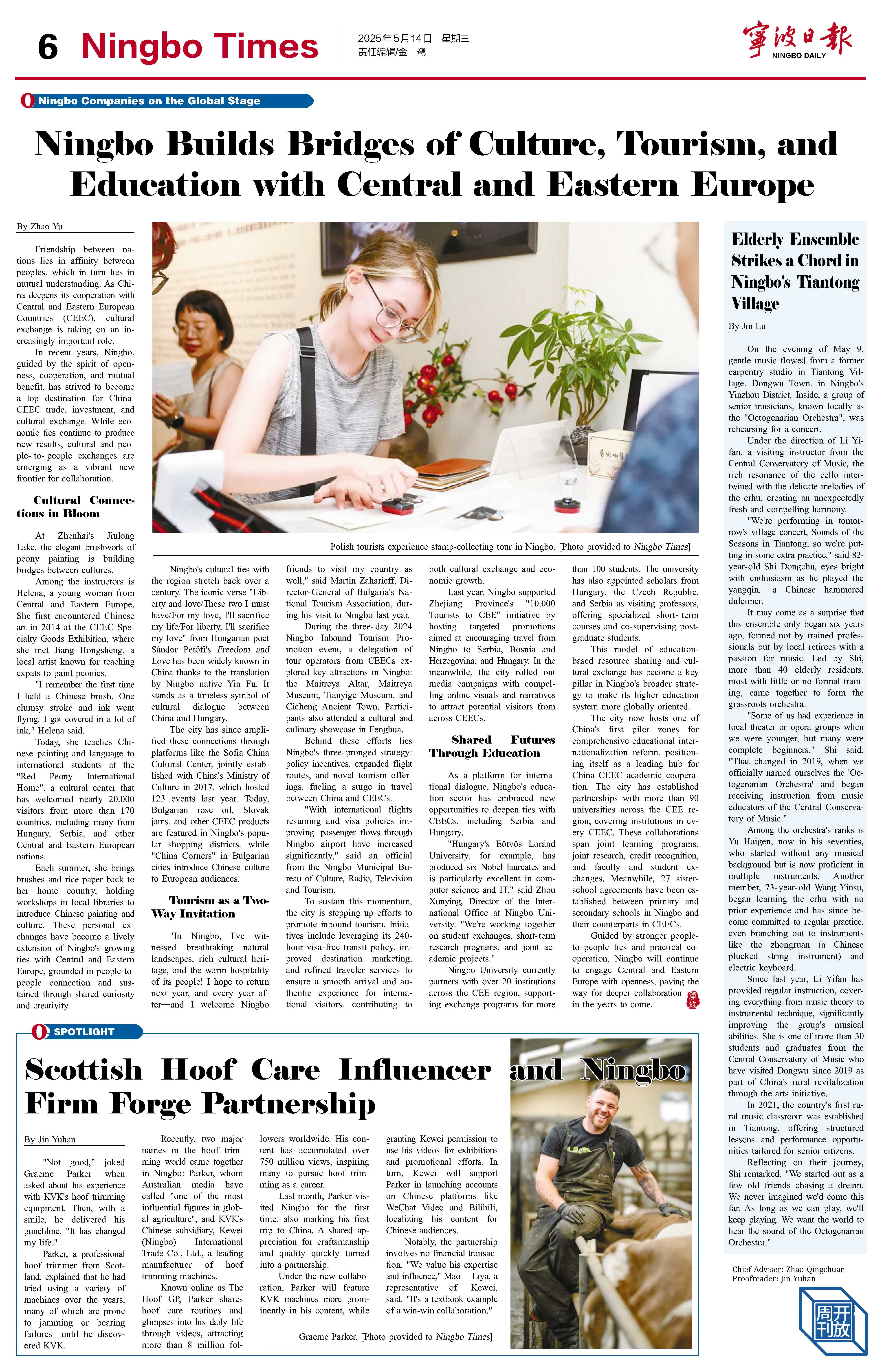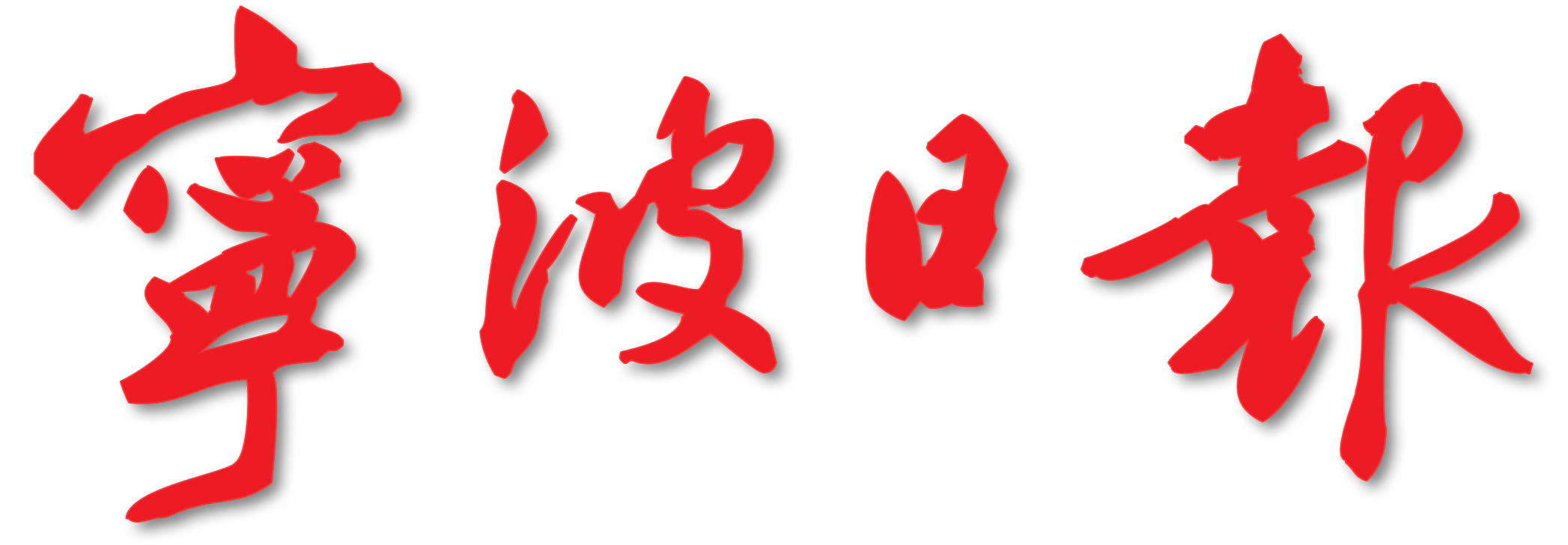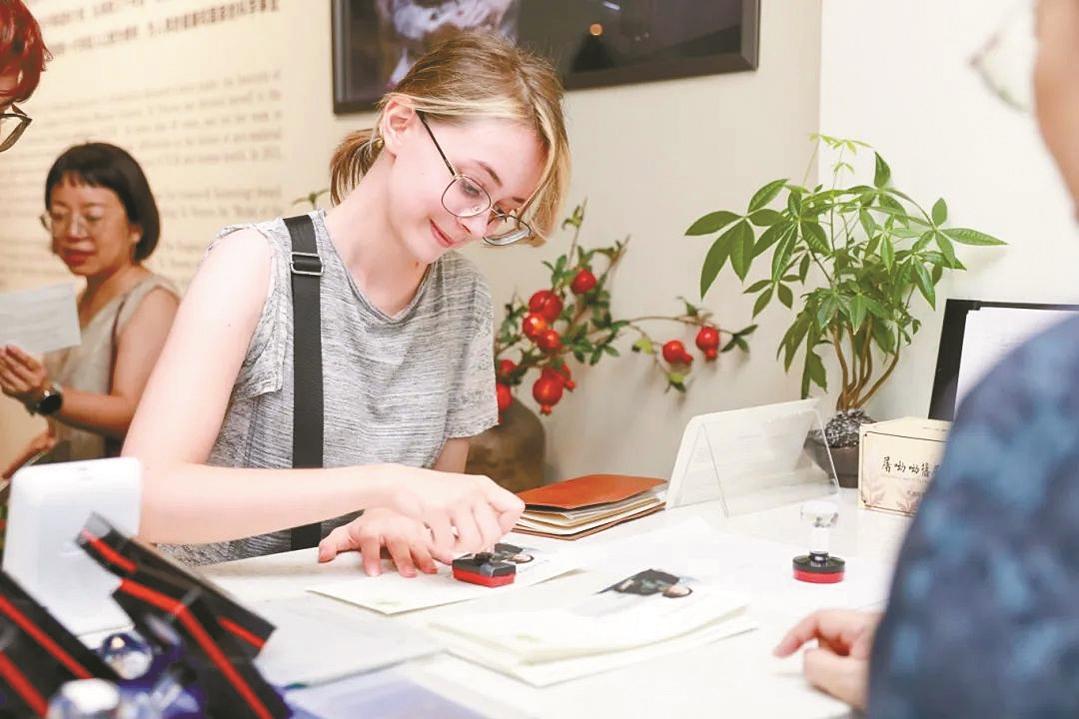By Zhao Yu
Friendship between nations lies in affinity between peoples, which in turn lies in mutual understanding. As China deepens its cooperation with Central and Eastern European Countries (CEEC), cultural exchange is taking on an increasingly important role.
In recent years, Ningbo, guided by the spirit of openness, cooperation, and mutual benefit, has strived to become a top destination for China-CEEC trade, investment, and cultural exchange. While economic ties continue to produce new results, cultural and people-to-people exchanges are emerging as a vibrant new frontier for collaboration.
Cultural Connections in Bloom
At Zhenhai's Jiulong Lake, the elegant brushwork of peony painting is building bridges between cultures.
Among the instructors is Helena, a young woman from Central and Eastern Europe. She first encountered Chinese art in 2014 at the CEEC Specialty Goods Exhibition, where she met Jiang Hongsheng, a local artist known for teaching expats to paint peonies.
"I remember the first time I held a Chinese brush. One clumsy stroke and ink went flying. I got covered in a lot of ink," Helena said.
Today, she teaches Chinese painting and language to international students at the "Red Peony International Home", a cultural center that has welcomed nearly 20,000 visitors from more than 170 countries, including many from Hungary, Serbia, and other Central and Eastern European nations.
Each summer, she brings brushes and rice paper back to her home country, holding workshops in local libraries to introduce Chinese painting and culture. These personal exchanges have become a lively extension of Ningbo's growing ties with Central and Eastern Europe, grounded in people-to-people connection and sustained through shared curiosity and creativity.
Ningbo's cultural ties with the region stretch back over a century. The iconic verse "Liberty and love/These two I must have/For my love, I'll sacrifice my life/For liberty, I'll sacrifice my love" from Hungarian poet Sándor Petőfi's Freedom and Love has been widely known in China thanks to the translation by Ningbo native Yin Fu. It stands as a timeless symbol of cultural dialogue between China and Hungary.
The city has since amplified these connections through platforms like the Sofia China Cultural Center, jointly established with China's Ministry of Culture in 2017, which hosted 123 events last year. Today, Bulgarian rose oil, Slovak jams, and other CEEC products are featured in Ningbo's popular shopping districts, while "China Corners" in Bulgarian cities introduce Chinese culture to European audiences.
Tourism as a Two-Way Invitation
"In Ningbo, I've witnessed breathtaking natural landscapes, rich cultural heritage, and the warm hospitality of its people! I hope to return next year, and every year after—and I welcome Ningbo friends to visit my country as well," said Martin Zaharieff, Director-General of Bulgaria's National Tourism Association, during his visit to Ningbo last year.
During the three-day 2024 Ningbo Inbound Tourism Promotion event, a delegation of tour operators from CEECs explored key attractions in Ningbo: the Maitreya Altar, Maitreya Museum, Tianyige Museum, and Cicheng Ancient Town. Participants also attended a cultural and culinary showcase in Fenghua.
Behind these efforts lies Ningbo's three-pronged strategy: policy incentives, expanded flight routes, and novel tourism offerings, fueling a surge in travel between China and CEECs.
"With international flights resuming and visa policies improving, passenger flows through Ningbo airport have increased significantly," said an official from the Ningbo Municipal Bureau of Culture, Radio, Television and Tourism.
To sustain this momentum, the city is stepping up efforts to promote inbound tourism. Initiatives include leveraging its 240-hour visa-free transit policy, improved destination marketing, and refined traveler services to ensure a smooth arrival and authentic experience for international visitors, contributing to both cultural exchange and economic growth.
Last year, Ningbo supported Zhejiang Province's "10,000 Tourists to CEE" initiative by hosting targeted promotions aimed at encouraging travel from Ningbo to Serbia, Bosnia and Herzegovina, and Hungary. In the meanwhile, the city rolled out media campaigns with compelling online visuals and narratives to attract potential visitors from across CEECs.
Shared Futures Through Education
As a platform for international dialogue, Ningbo's education sector has embraced new opportunities to deepen ties with CEECs, including Serbia and Hungary.
"Hungary's Eötvös Loránd University, for example, has produced six Nobel laureates and is particularly excellent in computer science and IT," said Zhou Xunying, Director of the International Office at Ningbo University. "We're working together on student exchanges, short-term research programs, and joint academic projects."
Ningbo University currently partners with over 20 institutions across the CEE region, supporting exchange programs for more than 100 students. The university has also appointed scholars from Hungary, the Czech Republic, and Serbia as visiting professors, offering specialized short-term courses and co-supervising postgraduate students.
This model of education-based resource sharing and cultural exchange has become a key pillar in Ningbo's broader strategy to make its higher education system more globally oriented.
The city now hosts one of China's first pilot zones for comprehensive educational internationalization reform, positioning itself as a leading hub for China-CEEC academic cooperation. The city has established partnerships with more than 90 universities across the CEE region, covering institutions in every CEEC. These collaborations span joint learning programs, joint research, credit recognition, and faculty and student exchanges. Meanwhile, 27 sister-school agreements have been established between primary and secondary schools in Ningbo and their counterparts in CEECs.
Guided by stronger people-to-people ties and practical cooperation, Ningbo will continue to engage Central and Eastern Europe with openness, paving the way for deeper collaboration in the years to come.



